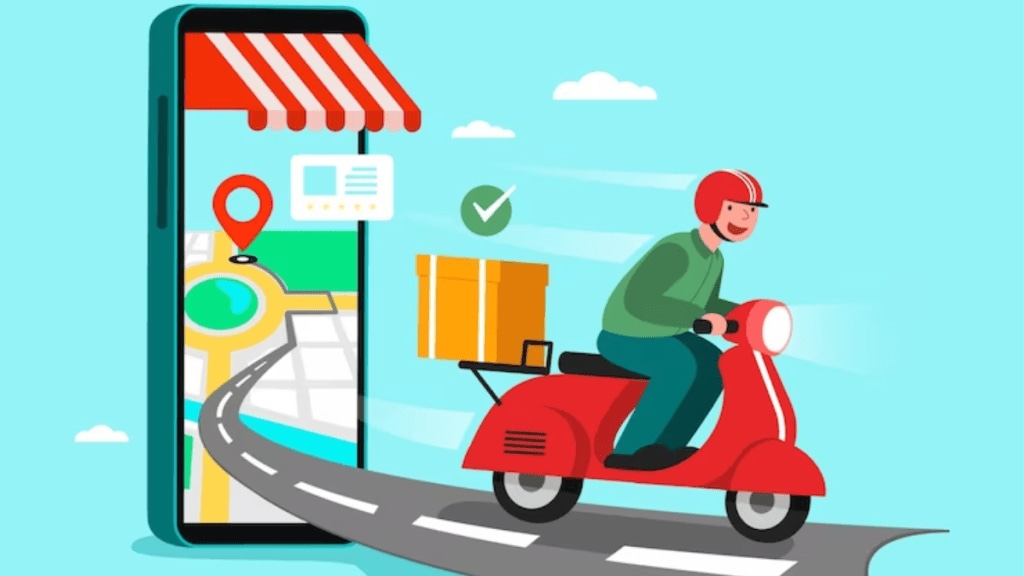In less than two years, the 10-minute delivery promise of quick commerce players seems to have gone from a marketing ploy to a critical driver of customer growth.
Zomato-owned Blinkit, Zepto, Swiggy’s Instamart and Big Basket’s BBNow have all seen a rapid pace of customer adoption — with users hooked to the speed and convenience of the model — and growth.
Concerns, however, remain around its long-term economics. According to some analysts, with none of the quick-commerce players being profitable yet, questions over long-term sustainability cannot be brushed aside. Take Blinkit and Zepto for example. Blinkit, formerly known as Grofers, rolled out the 10-minute delivery model in December 2021.
It re-branded itself a few months after Y combinator-backed Zepto entered the quick commerce market, promising a similar delivery time. In the initial months, both struggled to deliver consistently within the advertised time, primarily because their network of dark stores, or micro fulfilment centres, was weak in major cities. Besides, the technology to forecast demand from a certain area based on its purchase pattern was yet to be fine-tuned. The platforms also grappled with rider availability.
Quick turnaround
Two years later, the story seems to be completely different. In most parts of major cities, Blinkit now delivers in six to seven minutes, and Zepto also sticks to its 10-minute deadline. With more customers drawn by the convenience of delivery within minutes, Blinkit has grow its number of orders from 22.2 million in Q1FY23 to 55.8 million in Q3FY24.
In terms of sales, Blinkit, acquired by Zomato in August 2022, reported a revenue of Rs 644 crore in the December quarter of this fiscal. This was nearly 4x of the Rs 164 crore revenue reported in Q1FY23, a few months after the rebranding. As for Zepto, its topline growth has been remarkable. The startup recorded a sales growth of nearly 14x to Rs 2,024 crore in FY23, compared to Rs 142.36 crore generated in FY22.
Over the last two years, these platforms have expanded their dark store network at a breakneck speed, often at the cost of profitability, and fine-tuned the technology that helps them forecast demand from a certain area. This helps them stock the dark stores in that area accordingly, thereby reducing delivery distance. Swiggy’s Instamart, too, reduced its delivery time from 35-40 minutes at the time of launch in 2020, to 15-30 minutes in 2022, and 10-minute deliveries now.
Swiggy managed to grow its consolidated revenue by 45% year-on-year to Rs 8,625 crore in FY23, out of which Instamart’s share had reportedly grown by 40% to Rs 3,221 crore. Among the quick commerce players, BBNow — the quick commerce service of Tata Group-backed BigBasket — is still struggling to deliver at a pace similar to its rivals. It currently offers 10-20 minute delivery within a 2.5 km radius.
Bigbasket’s co-founder Hari Menon had earlier expressed doubt about the unit economics of 10-minute deliveries and that this was never a need of the customer, but something that had been thrust upon them. The company is instead focusing on scaling its largest business of slotted delivery, which will now deliver within two hours, compared to the earlier same-day or next-day delivery, and will soon move towards delivering in an hour.
Long-term woes
Despite the speedy adoption and staggering growth, analysts still believe the high-burn business model, which requires quick commerce players to get their dark stores closer to customers, may not be sustainable. Currently, none of the quick commerce players are profitable. While Zepto’s losses widened to Rs 1,272 crore in FY23 from Rs 390 crore in the previous year, Swiggy’s losses surged to Rs 4,179 crore, compared to a loss of Rs 3,629 crore in FY22.
Blinkit is trying to get closer to a breakeven by the first quarter of FY25, after its losses widened to Rs 1,190 crore in FY23 from Rs 1,021 crore crore earlier. While details of BBNow’s profitability are not known, its parent BigBasket’s B2C business saw losses widen to Rs 1,535 crore in FY23 from Rs 812 crore in the year before that.
According to analysts, while abundant private capital from deep-pocketed investors seems to have so far helped these firms scale their dark store network at a rapid pace, sustained profitability has not been in the conversation. In densely populated urban areas, the dark store model may turn out to be profitable at the moment, due to the high order frequency. But as the companies build more such stores beyond the major cities and rentals in urban areas get more expensive, profitability may not come easy in the long run. “A lot has been achieved by quick commerce players, but the business model is not sustainable yet,” said Anand Ramanathan, partner at Deloitte India, who leads the consumer, products and retail sectors at the firm.
To achieve sustained profitability, Ramanathan suggests that quick commerce companies would need to turn their dark stores from just an inventory centre to a walk-in retail store as well, where customers can shop physically. This will help them attract customers who are looking to do their monthly bulk shopping, and not just those who are looking for a convenient way to buy a few items urgently. “So, you have to cater to both and that can only be done if you have both of these formats — brick and mortar and pure delivery. This will give you the volume and the economies which come from a higher bill value,” he added.

